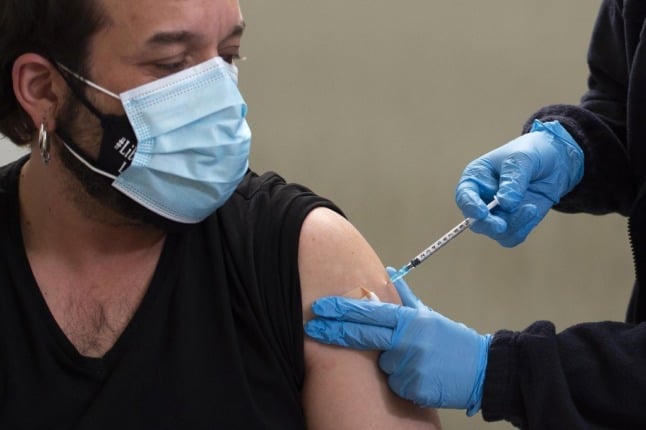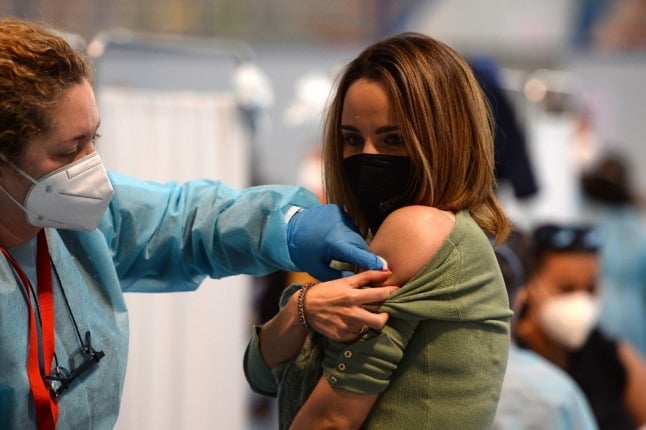*JULY 5TH UPDATE: If you want to find out which regions are vaccinating people in the 30 to 39 age group from July 5th to July 11th, here is the latest update.
As Prime Minister Pedro Sánchez announced back in May, Spain’s vaccine strategy will be focused on inoculating its 50 to 59 age group in June.
However, Spain’s 17 regions are managing their own inoculation campaigns and most have already begun vaccinating people in their 40s as well.
Although fewer than 20 percent of people aged 40 to 49 have been vaccinated, some of Spain’s autonomous communities have either started making vaccination appointments available to people in their thirties or started vaccinating them as well.
As things stand on June 11th 2021, a quarter of Spain’s population (11.8 million) have been fully vaccinated and 43.4 percent (20.6 million) have received at least one dose.
When are people aged 30 to 39 likely to get vaccinated in Spain?
The Canary Islands is the first region to start immunising people in their 30s, as in the least populated islands the vaccination of under 50s is far more advanced than the national average. On May 25th, health authorities in the Atlantic archipelago also opened up vaccination appointments to everyone over the age of 16.
The autonomous cities of Ceuta and Melilla began vaccinating under 40s on June 10th.
Castilla-La Mancha is another region which has announced it intends to start vaccinating those in their 30s in June, as of June 21st to be precise. Extremadura is also expected to start vaccinating this age group in mid-June.
Andalusian health authorities expect to start vaccinating under 40s ahead of schedule starting towards the end of next week, which runs from June 14th to June 20th.
In Madrid, regional health councillor Enrique Ruiz Escudero expects people aged 30 to 39 in the capital to start their jabs in late June.
However, in other regions such as Navarre, local authorities believe this age group will start being vaccinated in July.
In the Valencia region, president Ximo Puig has said that currently people in their 30s can expect to be inoculated in July, but given that the vaccination of those in their 40s started ten days earlier than forecast on June 7th, the July date could be brought forward for the 30 to 39 age group as well.
READ ALSO:
Covid-19 vaccine for under 50s in Spain: What you need to know
In Catalonia, Public Health Secretary Carmen Cabezas said people in their 30s will be vaccinated “in the coming weeks” and that those aged 40 to 44 can book an appointment now for the vaccine.
Health authorities in Catalonia announced back in May that they intended to vaccinate their population between the ages of 16 and 39 all at the same time in July, making it the first region in Spain to provide a vaccination time frame for its younger adults.
The remaining regions are likely to start vaccinating people in their 30s in July, unless a fast rollout for under 50s allows for an earlier start date.
 (Photo by ANDER GILLENEA / AFP)
(Photo by ANDER GILLENEA / AFP)
Which vaccines will people aged 30 to 39 get in Spain?
Spain’s Health Ministry is yet to publish an official update of its vaccination plan detailing which vaccines the regions should administer to people in their 30s, with the latest revision only addressing plans for those aged 40 to 49 (Group 10).
However, as things stand the Pfizer and Moderna vaccines are the ones being used by the regions that have started vaccinating under 40s.
Pregnant and breastfeeding women in their 30s will also likely receive the mRNA, Pfizer or Moderna vaccines.
Many people in their 30s may be currently hoping that Spanish health authorities approve the use of the single-dose Johnson & Johnson inoculation for their age group, just as Spain’s Health Ministry did for 40 to 49-year olds on June 1st.
Unfortunately, the latest reports point to the fact that Spain is receiving far fewer J&J vaccines than anticipated due to serious delivery delays (5.5 million doses expected this quarter, 1.2 million received so far).
As a result of these hold-ups, health workers have decided to give the first dose of Moderna and Pfizer vaccines to people in their 40s and 50s in order to not keep them waiting, meaning that only 700,000 J&J of the 1.2 million available have been used.
This may influence Spain’s Public Health Commission and Health Ministry when it comes to announcing which vaccines will be made available to people in their 30s, although it’s hard to predict whether it will favour or hinder the inclusion of the one-dose Janssen vaccines in their updated strategy.
If you want to find out more about Spain’s Covid-19 vaccination campaign, vaccination certificates, getting an appointment and more, check our The Local Spain’s Covid-19 vaccine section here.



 Please whitelist us to continue reading.
Please whitelist us to continue reading.
Member comments